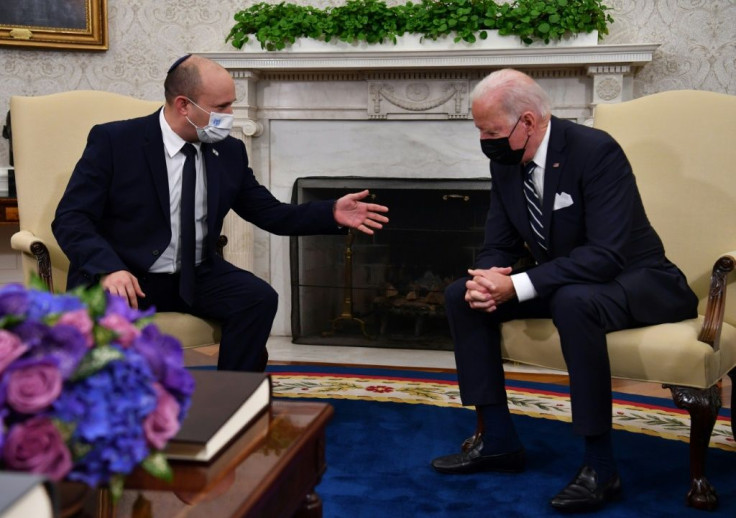US, Israel 'Concerned' About Diplomatic Stalemate With Iran

The U.S. and Israel held secret talks last week in which they weighed alternative options on how to address challenges from Iran, according to a report Wednesday from Axios.
Two Israeli sources told Axios that officials from both sides resumed meetings of the U.S.-Israel Strategic Working Group on Iran called Opal, or Leshem, in Hebrew.
The forum has its roots in the early days of the Obama administration. The meeting was reportedly the first attended by members of Prime Minister Naftali Bennett's government since it was sworn in last June.
During his meeting with President Joe Biden in the White House in August, Biden and Bennett reportedly agreed to resume meetings of the working group.
Discussions were led by U.S. National Security Advisor Jake Sullivan together with his Israeli counterpart Eyal Hulata, a former Mossad officer. Israeli officials expressed the need to begin reconsidering options for a "plan B" in dealing with Iran because of the ongoing stalemate in diplomatic talks about Tehran's nuclear program.
While the Biden administration has stressed that it hopes to renegotiate the Iran Nuclear Deal, its delegates to the meeting expressed exasperation with the current deadlock. They offered the idea of implementing new sanctions against Iran to push it into making a concession in Vienna where the negotiations are taking place.
It is unclear if this plan would be successful if actually implemented. Iranian leadership and diplomats have all made clear that they will not rejoin any new deal until sanctions passed by the Trump administration are removed. Iran's new President Ebrahim Raisi said in his address to the United Nations General Assembly that talks would resume in "the next few weeks" but promised a tougher stance than the previous government.
Imposing new sanctions in the middle of negotiations without the buy-in from other parties, like Russia or China, could prompt Iran to walk away from the talks altogether. At the same time, a unilateral U.S. move to sanction Iran during ongoing talks could add to the consternation of American allies in Europe.
The European Union and the U.S. are at loggerheads over France’s expulsion from a submarine deal with Australia. The EU has also expressed dissatisfaction with the Biden administration's recent military withdrawal from Afghanistan.
Bennett has maintained a hard line towards Iran, much like his predecessor Benjamin Netanyahu. But Bennett is hoping to reset strained relations with the U.S. and has signaled disagreement with the Iran nuclear talks, but has not actively worked to scuttle them.
The government coalition Bennett presides over is also a fragile hodgepodge of ideological opposites who coalesced around defeating Netanyahu this year. If Bennett were to waver on a hard line towards Iran, it could risk defections that could lead to an early collapse of this arrangement.





















